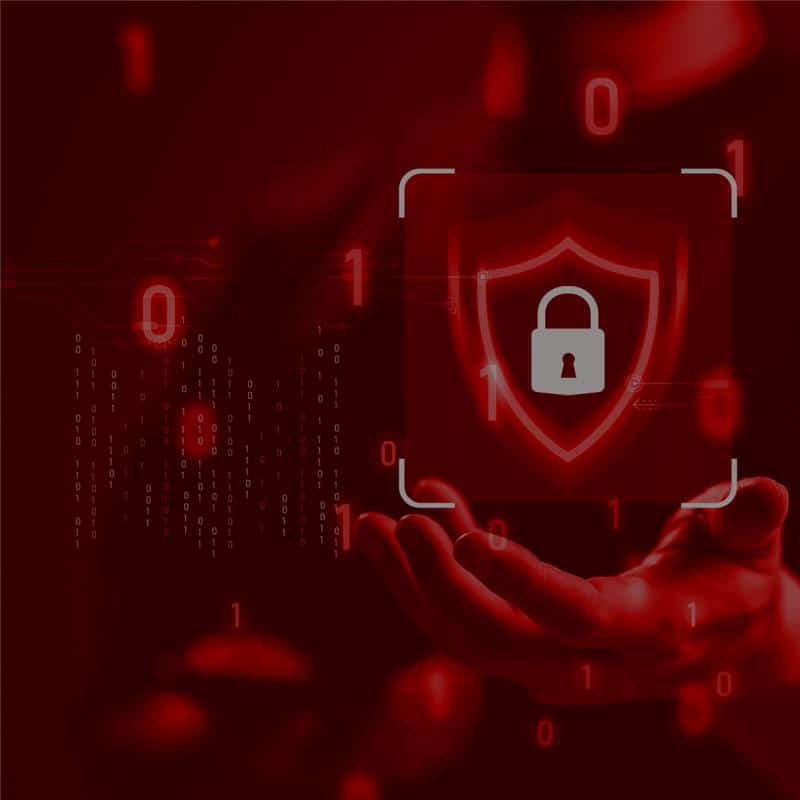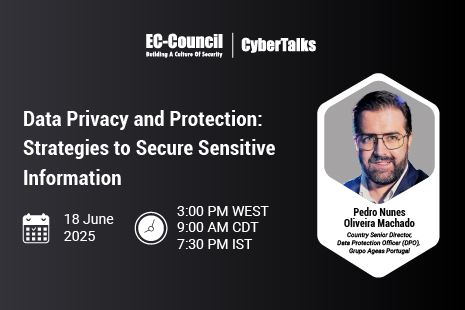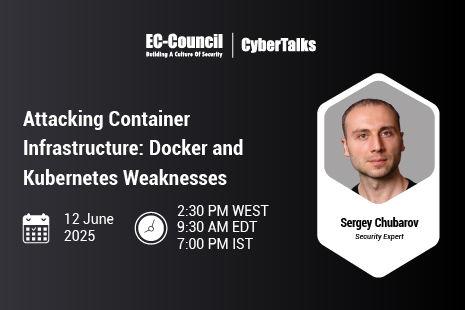EC-Council is proud to announce the launch of our new cybersecurity technician certification: the Certified Cybersecurity Technician (C|CT).
This certification, designed for those who want to start a career in cybersecurity, focuses heavily on skills-based labs and validates graduates’ technician-level skills with a rigorous practical exam. It’s perfect for those looking to enter the IT and cybersecurity workforce or gain a competitive edge in their current career.
What Is the Certified Cybersecurity Technician Certification?
The C|CT certification is a vendor-neutral, entry-level credential that validates an individual’s ability to perform essential tasks for a variety of IT and cybersecurity job roles. The C|CT certification is ideal for individuals who are beginning their careers in cybersecurity or want to augment their current skill set.
Cybersecurity Technician Program Topics
The C|CT cybersecurity program covers a wide range of introductory and fundamental topics related to cybersecurity.
Introduction to Cybersecurity
The course starts with an overview of the cybersecurity field, including its history, development, and future. You’ll learn about the various types of cyberattacks and the defenses that security professionals use to protect against them.
Cybersecurity Fundamentals
This module covers the basics of cybersecurity, including risk management (Brooks, 2021), security controls, and incident response. You’ll gain knowledge about common threats and vulnerabilities, as well as how to identify and mitigate them.
Network Defense
This module covers the basics of network security and how to protect systems against attacks. You’ll learn how to use and understand firewalls, intrusion detection and prevention systems, and other defensive measures (Martínez, 2021).
Ethical Hacking
Ethical hacking is the process of legally attacking a system to find vulnerabilities that attackers could exploit. This module covers different types of hacking techniques and how to use them safely in an ethical hacking context.
Digital Forensics
Digital forensics is the process of investigating and analyzing digital devices, systems, and networks to find evidence of a crime. After completing this module, you’ll be able to identify the different types of digital evidence, how to collect it safely, and how to analyze it.
Security Operations
In this module, you’ll learn about the day-to-day operations of a security operations center (SOC) team. Topics include incident response, security monitoring, and threat intelligence.
Comprehensive Performance-Based Exam
Once you’ve completed all the coursework, you’ll take a rigorous practical exam that tests your ability to apply the knowledge and skills you’ve learned through the C|CT program in real-world scenarios. Once you pass the exam, you’ll receive the C|CT certification.
The Career Path for a Certified Cybersecurity Technician
The C|CT certification is a great starting point for your cybersecurity career. After completing the C|CT certification, you’ll have the skills and knowledge needed for a variety of jobs in cybersecurity and IT, including:
- SOC analyst. A SOC analyst is responsible for monitoring and analyzing security events to identify threats and vulnerabilities.
- Security engineer. A security engineer is responsible for designing, implementing, and maintaining the security of an organization’s networks and systems.
- Cybersecurity technician. A cybersecurity technician protects an organization’s systems and digital assets by offering technical assistance, fixing problems, and monitoring potential threats.
The C|CT also lays the foundation for you to to further specialize in a field like penetration testing or digital forensics or eventually move into a more senior position as a manager or executive. Here are some of the roles that C|CTs might pursue:
- Penetration tester. A penetration tester evaluates an organization’s defenses by attempting to break into its systems, networks, and applications with the organization’s permission.
- Digital forensic investigator. A digital forensics investigator collects and analyzes digital evidence, such as log files and database content, for use in criminal proceedings and private investigations.
- Ethical hacker. Like penetration testers, ethical hackers lawfully use their hacking knowledge and skills to help organizations improve their security. EC-Council’s industry-respected Certified Ethical Hacker (C|EH) certification is an excellent next step for professionals seeking additional training after the C|CT.
Why Become a Certified Cybersecurity Technician?
With the demand for qualified cybersecurity professionals rapidly increasing (Legg, 2021), certifications like the C|CT can help individuals get a leg up in the competitive job market. The C|CT credential validates the holder’s ability to perform essential cybersecurity job tasks—a valuable asset to any employer.
Moreover, EC-Council is a widely recognized, accredited, and well-respected authority in the cybersecurity field, and our certifications are backed by extensive training materials and world-class labs. With EC-Council, you can be confident that you’re getting the best possible preparation for your cybersecurity career.
The Benefits of Getting Certified
The C|CT certification is a great way to demonstrate your skills and knowledge in the cybersecurity field. It’s an internationally recognized certification that proves you have the hands-on experience necessary to defend organizations against cyberattacks.
The C|CT certification can help you:
- Stand out from the competition. With the C|CT certification, you’ll have a proven record of your skills and knowledge, equipping you to pursue various cybersecurity roles.
- Gain credibility and respect in the cybersecurity community. Security professionals and leading organizations worldwide recognize the C|CT certification.
- Secure a job in an in-demand field. Cybersecurity is a fast-growing industry, and the need for qualified professionals is high (Legg, 2021).
- Earn a higher salary. Cybersecurity professionals often receive competitive compensation—as of March 2022, the average cybersecurity analyst in the United States earned over USD 77,000 per year (PayScale, 2022).
Kickstart Your Cybersecurity Career
Cybersecurity is complex and rapidly evolving, and the C|CT certification gives you the skills and knowledge to stay ahead of the curve. As a cybersecurity technician, you’ll be responsible for the day-to-day protection of an organization’s networks and systems. You’ll also have the foundation to use your C|CT training as a gateway to more senior positions in the cybersecurity field.
Whether your goal is to switch careers to cybersecurity or to gain the skills and knowledge you need to protect your current organization from cyberattacks, the C|CT certification is for you. If you’re ready to get started, visit EC-Council to learn more about the C|CT certification.
Brooks, C. (2021, November 1). Bolstering cybersecurity risk management with SBOMS. Forbes. https://www.forbes.com/sites/chuckbrooks/2021/11/01/bolstering-cybersecurity-risk-management-with-sboms/
Legg, J. (2021, October 21). Confronting the shortage of cybersecurity professionals. Forbes. https://www.forbes.com/sites/forbesbusinesscouncil/2021/10/21/confronting-the-shortage-of-cybersecurity-professionals/
Martínez, H. G. (2022, February 9). Cyberdefense in 2022: Business as usual? Forbes. https://www.forbes.com/sites/forbestechcouncil/2022/02/08/cyber-defense-in-2022-business-as-usual/
PayScale. (2022, March 15). Average cyber security analyst salary. https://www.payscale.com/research/US/Job=Cyber_Security_Analyst/Salary










